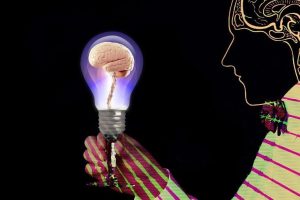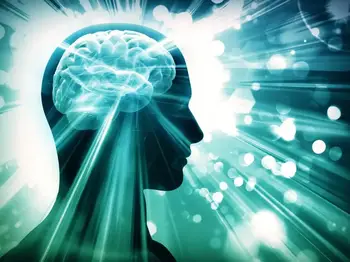
Aging Brain’s Ally: The Remarkable Protein That Fuels Three Rejuvenation Paths
Dr. Stanley Prusiner
Aging is an inevitable part of life, and with it comes a host of changes, especially in our bodies and, most notably, our brains. As the years pass, cognitive functions may begin to decline, leaving us in search of ways to maintain a sharp mind and vibrant mental faculties. However, in the realm of scientific discovery, a remarkable protein has emerged as a potential ally in combating age-related cognitive decline. Join us on a fascinating exploration of the protein that fuels three rejuvenation paths for the aging brain. Dr. Stanley Prusiner, a pioneer in prion research, will illuminate our path with his invaluable insights.
Meet Dr. Stanley Prusiner
Before we dive into the world of brain rejuvenation, let’s introduce the expert guiding us through this remarkable journey:
Dr. Stanley Prusiner: With groundbreaking research, Dr. Stanley Prusiner earned international recognition for his discovery of prions, infectious proteins responsible for several neurodegenerative diseases. His extensive contributions to neuroscience have paved the way for understanding the role of proteins in brain health.
Now, let’s delve into the extraordinary protein that promises to be an ally for the aging brain.
The Proteins That Fuel Brain Rejuvenation
To comprehend the significance of brain rejuvenation, we must first explore the proteins driving this phenomenon:
1. The Prion Protein (PrP)
Prion Protein (PrP), initially notorious for its role in neurodegenerative diseases, is now being hailed as a player in brain rejuvenation. Dr. Stanley Prusiner’s research has uncovered its remarkable properties:
Path 1: Synaptic Plasticity Enhancement
Synaptic Plasticity
One of the remarkable roles PrP plays is in enhancing synaptic plasticity, which is the brain’s capacity to adapt and form new connections. Synaptic plasticity is fundamental to learning and memory processes. As we age, these processes may decline, leading to memory lapses and reduced cognitive function. However, PrP may hold the key to rejuvenating these vital brain functions. It fosters improved learning and memory retention in aging brains.

Path 2: Neuroprotection
Fact: PrP may serve as a neuroprotective agent by shielding neurons from harmful factors. Over time, neurons can become vulnerable to oxidative stress, inflammation, and other damaging processes, which can contribute to cognitive decline. PrP’s neuroprotective properties offer hope in reducing the risk of age-related cognitive decline.
Path 3: Promoting Neurogenesis
Neurogenesis
Perhaps the most intriguing path PrP takes is associated with the promotion of neurogenesis—the creation of new brain cells. Neurogenesis was once believed to be a process limited to early development, but recent research has unveiled its presence in the adult brain. This phenomenon holds immense promise for rejuvenating aging brains. The ability to generate new neurons can potentially counteract the loss of brain cells that naturally occurs with age and contribute to improved cognitive function.
2. The Promise of Therapeutic Implications
Dr. Stanley Prusiner’s groundbreaking research has not only expanded our understanding of PrP’s role in brain rejuvenation but also paved the way for potential therapeutic applications. Scientists and researchers worldwide are now exploring the development of drugs or interventions that harness the power of PrP to support brain health in aging individuals. This exciting frontier could lead to new treatment options for age-related cognitive decline and neurodegenerative diseases.
3. The Importance of Lifestyle Factors
Lifestyle
While PrP presents exciting possibilities, maintaining a healthy lifestyle remains crucial for brain rejuvenation. Factors such as a balanced diet, regular exercise, and cognitive stimulation complement the potential benefits of PrP. It’s important to remember that a holistic approach to brain health is essential. These lifestyle factors create an environment in which the brain can thrive and make the most of the rejuvenating potential offered by PrP.
Conclusion
In the quest to combat age-related cognitive decline, the discovery of the remarkable Prion Protein (PrP) offers a ray of hope. Dr. Stanley Prusiner’s pioneering research has revealed three distinct paths through which PrP can fuel brain rejuvenation: enhancing synaptic plasticity, providing neuroprotection, and promoting neurogenesis.
While PrP holds immense promise, it is essential to remember that a holistic approach to brain health, including lifestyle factors, plays a pivotal role in maintaining cognitive function. As we age, the alliance between science and conscious living may unlock new horizons for the aging brain, offering the prospect of a vibrant and resilient mind.
The journey of understanding PrP and its potential applications in brain rejuvenation is ongoing. Researchers continue to explore its mechanisms, potential therapies, and ways to harness its benefits fully. This quest holds the promise of brighter and more mentally agile golden years for countless individuals worldwide.
Table 1: Paths of Brain Rejuvenation by Prion Protein (PrP)
| Path | Benefits |
|---|---|
| Synaptic Plasticity | Enhances learning and memory. |
| Neuroprotection | Shields neurons from harm. |
| Neurogenesis | Promotes the creation of new brain cells. |
Table 2: Lifestyle Factors for Brain Health
| Lifestyle Factor | Benefits |
|---|---|
| Balanced Diet | Provides essential nutrients for brain health. |
| Regular Exercise | Improves blood flow and cognitive function. |
| Cognitive Stimulation | Keeps the mind active and engaged. |










